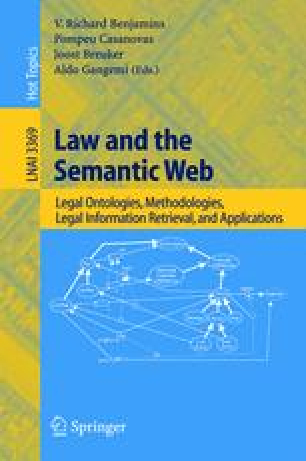
Law and the Semantic Web
Publication year: 2005
ISBN: 978-3-540-32253-5
Internet Resource: Please Login to download book
by Roberto Cencioni At the Lisbon Summit in March 2000, European heads of state and government set a new goal for the European Union — to become the most competitive knowled- based society in the world by 2010. As part of this objective, ICT (information and communication technologies) services should become available for every citizen, and for all schools, homes and businesses. The book you have in front of you is about Semantic Web technology and law. Law is something omnipresent; all citizens — at some points in their lives — have to deal with it. In addition, law involves a large group of professionals, and is a mul- billion business world wide. Information technology is important because it that can improve citizens’ interaction with law, as well as improve legal professionals’ work environment. Legal professionals dedicate a significant amount of their time to finding, reading, analyzing and synthesizing information in order to take decisions, and prepare advice and trials, among other tasks. As part of the “Semantic-Based Knowledge and Content Systems” Strategic Objective, the European Commission is funding projects to construct technology to make the Semantic Web vision come true. 1 The articles in this book are related to two current foci of the Strategic Objective : • Knowledge acquisition and modelling, capturing knowledge from raw information and multimedia content in webs and other distributed repositories to turn poorly structured information into machi- processable knowledge.
Subject: Computer Science, AI and law, DOM, Web-based legal information management, decision making, information management, jurisdiction, knowledge engineering, law, legal informatics, legal ontologies, legal service providers, ontologies, semantic Web, trusted knowledge